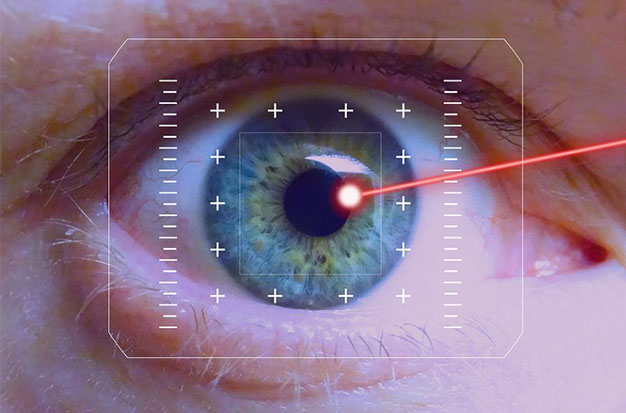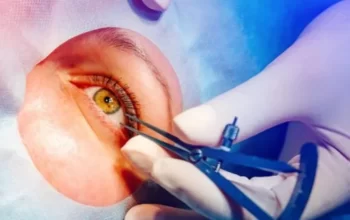
It happens frequently for cataracts to develop in the eye and cause vision loss. A safe, common, and painless procedure, cataract surgery is a relief. With an artificial lens in place of your natural (clouded) one, your vision will be restored without the chance of cataracts developing again in the future.
You’ll be well on your way to a better lifestyle once your cataract surgery is over and you have the clear vision you’ve yearned for years. You must be careful to allow yourself enough time to recover while adhering to your doctor’s post-operative instructions. During your recovery from cataract surgery, bear the following points in mind.
How Long Does Recovery Take After Cataract Surgery?
Although the procedure itself usually only takes 15 minutes, your doctor will keep you in a recovery room for about 30 minutes while the anesthesia wears off. After the procedure and while you rest or sleep, you will be required to wear a safety eye shield.
Even though the majority of patients report clear vision within a few hours of surgery, you shouldn’t be alarmed if you experience blurry, distorted, or wavy vision. Additionally typical during the healing process are red or bloodshot eyes. Report these symptoms to your eye doctor if they don’t go away after a few days.
For the first few weeks following surgery, plan to use eye drops. It typically takes a few weeks to a full month for the entire recovery process. You should keep your eye doctor informed of your development and closely adhere to their recommendations because everyone heals in a different way.
DOs
Use Your Eye Drops
Your surgeon will give you antibiotic and anti-inflammatory eye drops after the procedure. It’s crucial that you use these drops as directed because they’re essential for preventing infection and inflammation, which in turn promotes the healing process. Several times per day eye drops will need to be applied for the first few weeks following treatment. Throughout your various follow-up appointments, where we assess how well your eyes are healing, you will receive additional guidance on their use.
Avoid Activities In The Early Post-Op Phase Which Are Strenuous For Your Eyes
People may be tempted to resume work, strenuous exercise, and housework too soon after surgery because most people find that their vision improves quickly in the hours or days that follow the procedure. It’s important to take it easy in the first week after treatment because avoiding activities that can strain your eyes is a key element in promoting the healing process.
While we typically advise patients to wait at least three days before going back to work, this may change depending on how quickly their eyes are recovering. During your various follow-up appointments, your optometrist and clinical care team will be able to provide the best recommendations for you.
Attend All Your Aftercare Appointments
Your care doesn’t end after your procedure at Optical Express. For the best possible vision, we have created a comprehensive aftercare program. It’s important to attend each of your scheduled follow-up appointments as instructed by your optometrist and surgeon because receiving thorough aftercare is essential to ensuring that your recovery is progressing as it should. Both in-person and telemedicine appointments will be held.
A second follow-up consultation is scheduled one week, one month, and three months after surgery. You will typically receive your first comprehensive assessment from our clinical care team the day after treatment, during which they will assess whether your eyes have started to heal well. Your skilled optometrist will advise you to make follow-up appointments.
Use Your Protective Eyewear
To lower the risk of infections following surgery and, consequently, to promote a speedy recovery, it’s crucial to wear protective eyewear in the initial stages. Wearing safety goggles or shields will stop you from rubbing your eyes while you sleep at night, and wearing them in the shower will keep shampoo, soap, and water out of your eyes. In-depth instructions on how to use your goggles or shields will be given to you by your surgeon during your post-operative appointment, and he or she will be able to advise you on how long these will need to be worn.
Take Painkillers
Despite the fact that the procedure itself is painless, some patients may feel a little uncomfortable while their bodies are still healing. Over-the-counter pain relievers like paracetamol can be used to relieve any discomfort and make the recovery period more comfortable. This typically reduces quickly as your recovery progresses.

DON’Ts
Rub Your Eyes
One of the things to avoid doing after cataract surgery is vigorous eye rubbing for a number of reasons that can harm the healing process. For instance, rubbing can result in bacteria entering the eye, which could cause an infection. In addition, vigorous rubbing can harm the cornea, the window that forms the outside of the eye, and slow the healing process. Even though your eyes may initially feel a little uncomfortable after cataract surgery, it’s crucial to refrain from rubbing and touching them in order to help them heal as quickly as possible.
Expose Your Eyes To Irritants
Avoiding all potential irritants will help to ensure a comfortable healing process because your eyes will be more sensitive while they’re healing. These can consist of dirt, smoke, wind, sunlight, and airborne allergens like pollen and dust. As a result, in the days following treatment, tasks like dusting and gardening are typically discouraged. Wearing eye protection is advised if you can’t completely avoid these irritants.
Drive For One Day
You must refrain from engaging in any strenuous activity for 24 hours after your procedure, so you won’t be able to drive on the day of surgery. We advise making transportation arrangements in advance, preferably with a friend or family member who can check on you once you get home and make sure you’re comfortable.
Several factors determine how long you must wait before you can resume driving. You can probably start driving in the days following surgery because your vision returns quickly. At your initial aftercare appointment, your optometrist will have the advice to offer on this.
Wear Eye Make-Up For The First 7 Days
The list of things to avoid following cataract surgery includes wearing eye makeup in order to speed up the recovery. It is advised to avoid wearing any makeup for at least the first seven days after treatment because, despite your best efforts, makeup particles can still irritate the skin and raise your risk of infections during the healing process. In the early follow-up appointments, your clinical care team will be able to offer more advice regarding when it is safe to start your makeup routine again.
Swim, Use Hot Tubs, Or Sauna
It’s important to reduce the risk of infection as much as you can because your eyes may become more prone to it as they heal from surgery. As water can carry bacteria harmful to the eyes, you can achieve this by avoiding swimming pools, hot tubs, and saunas in the first few weeks following treatment. Additionally, swimming is not advised because it constitutes a strenuous activity that should be avoided in the days following treatment.
Conclusion
Patients who overdo it and attempt to do too much too soon are one of our biggest problems. After your surgery, you might feel fantastic, but you need to gradually return to your regular daily activities. Avoid bending over right after the procedure because it puts more pressure on your eye. For similar reasons, attempt to avoid sneezing. After your surgery, don’t get behind the wheel. For the first few weeks following your surgery, we don’t want you to engage in any demanding physical activity or heavy lifting.
You need to avoid hot tubs and swimming pools for the first week or so while your eye heals. Additionally, avoid polluted and dusty areas for a few weeks to prevent getting these irritants in your eyes.
Although there are many things you shouldn’t do after surgery on the list above, you can still take a shower or bath, do some light computer work, or watch a little television a few hours after the procedure. For the fastest recovery following cataract surgery, remember to adhere to all of these dos and don’ts. The sooner your first eye heals if you need to have both eyes operated on, the sooner we can treat your other eye.



